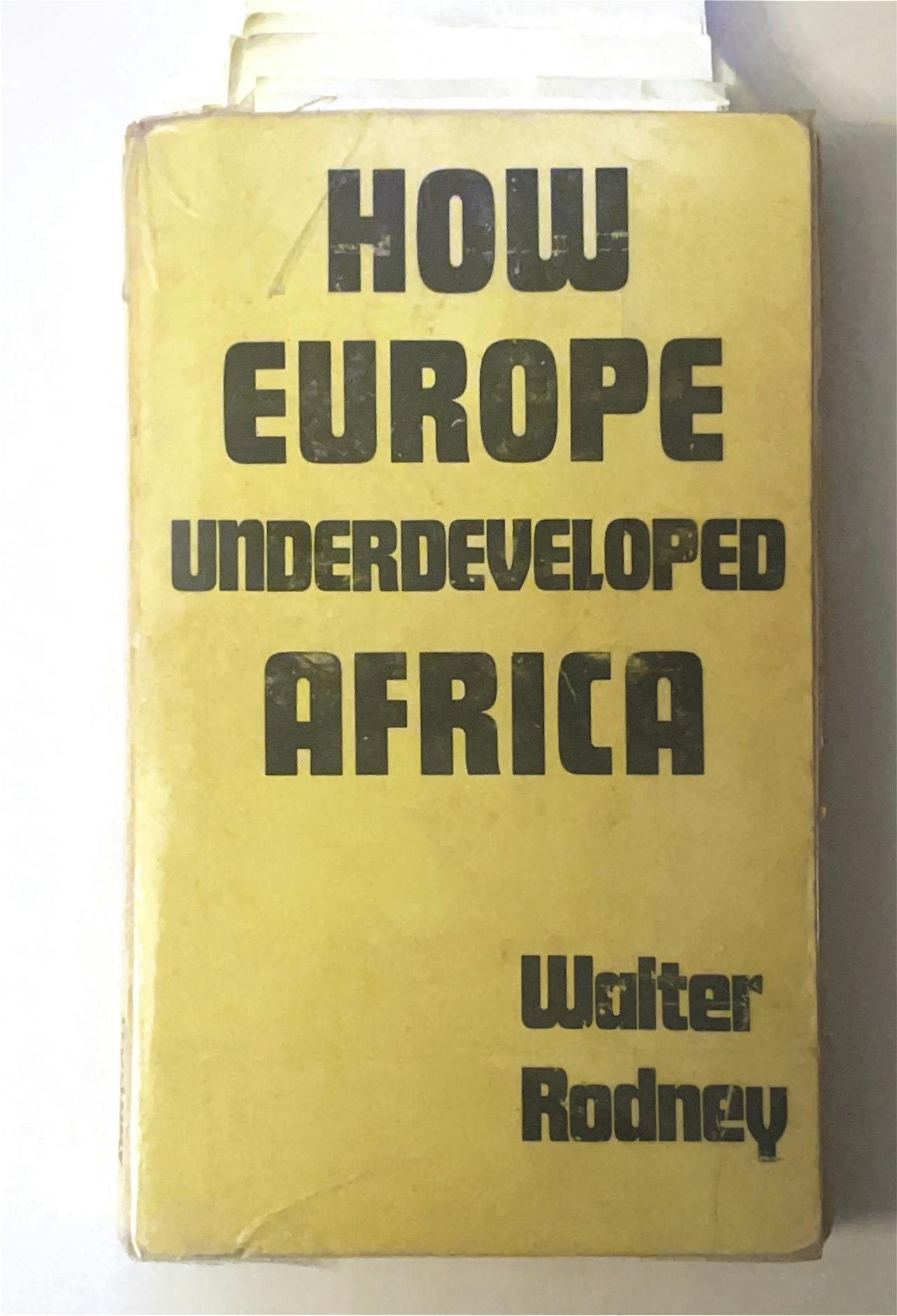- Talk
- Library-in-Residence
Library Transmission: On Losing and Gaining Conceptual Languages
David Scott

- Date and Time:
Friday 28 Nov 2025, 6.30-8.15pm
- Location:
- Majlis
For the second Library Transmission, The Otolith Collective is delighted to welcome David Scott to Ibraaz as part of their Library-in-Residence. David Scott will present a lecture entitled On Losing and Gaining Conceptual Languages: Walter Rodney’s How Europe Underdeveloped Africa between Revolution and Reparation, that considers the question of reparation and revolution through the work of Walter Rodney, introduced by Anjalika Sagar and followed by a conversation with Kodwo Eshun of The Otolith Collective.
Throughout his influential books, essays, interviews and exhibitions, David Scott has sought to think and theorise the Caribbean as a world and the world through the Caribbean. The New World of the Caribbean provides Scott with a vantage point from which to analyse the histories of forms of domination and the prospects of emancipation that organise political modernity. His writing stages a series of encounters between the revolutionary texts of the New World imagination and the political sensibility of contemporary generations separated by worlds, times and spaces; in doing so, his writing reimagines and renarrates the changing relations of anti-colonial futures past to neo-colonial pasts present.
On Losing and Gaining Conceptual Languages: Walter Rodney’s How Europe Underdeveloped Africa between Revolution and Reparation.
How should we reread in the present representative texts of the insurgent 1970s, the great age of socialist and Pan-African radicalism? The text with which I have been concerned is Walter Rodney’s How Europe Underdeveloped Africa, first published in 1972. This book is representative of the ethos of the radical anglophone Caribbean 1970s in the sense that it stages a vivid narrative of the relationship between the past of African enslavement, the present of underdevelopment, and the future of socialist revolution. However, we cannot continue to read it in this way in contemporary conditions in which the old horizons of revolutionary socialist transformation and Pan-Africanism have collapsed. And yet, something salient in Rodney’s book is calling it into a new present and provoking us to ask, how, now, to reread it. The question is: What strategies of rereading ought we to bring to bear on How Europe Underdeveloped Africa in order to excavate a new critical meaning from it in our present, in order to inherit its vision - its spirit, if not its letter - for the challenges we now face?
Supported using public funding by Arts Council England.
Doors open at 5.30pm; talk at 6pm.